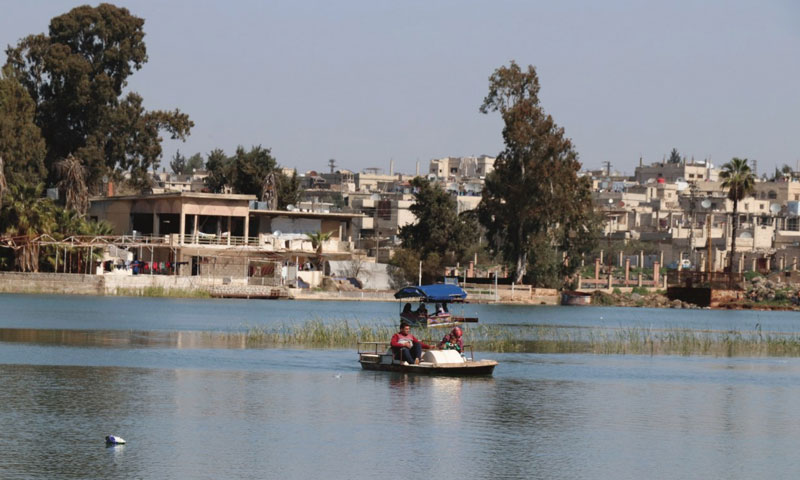



Daraa – Fish farming is one of the most important livestock sectors in the country. Each region has its unique conditions and issues, and means of facing the challenges of the industry and preserve fishing as an economic and food resource. However, much like other sectors, fishing faces many threats that have led to increases in fish prices to levels beyond what customers can afford.
Fodder, fuel, overfishing and the depletion of water resources are the main issues facing fish farmers in Daraa, raising production costs as well as the prices of commodities.
The price of one kilogram of live fish in Daraa has reached 2,000 SYP, which pushed citizens away from buying it. The cost of preparing a single meal for one family is estimated at 10,000 SYP, which does not correlate to current levels of income, amid deteriorating economic conditions in the country.
Fish prices vary depending on quality and source. The price of one kilogram of tilapia is 2,000 SYP, while a kilogram of carp can cost 18,000 SYP.
With increasing fodder prices, an indispensable cost of running a fishery, many fish farmers are unwilling to reopen their farms.
Abu Yacoub, a former fish farmer, told Enab Baladi that farming has become infeasible and costly, not only due to the high prices of fodder and the suspension of state subsidies, but also due to increased price of diesel fuel. One liter of diesel costs 500 SYP (approximately $1). This type of fuel is required to power pumps which replace or supplement water in fishing ponds on a regular basis.
The climate is also a factor in fish farming. Some fish are affected by the cold climate, and a large part of them die in winter, according to Abu Yacoub. This naturally affects the rate of production.
Natural lakes and dams are a major source of fish for the local market in southern governorates. They are also suitable as breeding grounds, due to their natural water regeneration and presence of aquatic plants. However, excessive and arbitrary fishing, especially for small and egg-laying fish, have affected the fishing yield of lakes, according to Abu Yacoub.
Mzeirib, the largest and most significant lake in the western Daraa countryside, is currently the main source of fish in Daraa. Dependence on Lake Mzeirib for fishing saw a sharp rise after the drought of other lakes such as Zayzoun.
The drought of some dam reservoirs in low rainfall seasons in recent years exacerbated the fish farming crisis. According to monitoring by Enab Baladi, fish production declined and with it availability in markets.
Despite the overall decline in the sector, fish farmers and traders hope that dams recover this year, after the heavy rainfall seen in the southern region last winter. They are optimistic that Daraa’s water resources will be replenished, and that their rate of production could return to adequate levels.
if you think the article contain wrong information or you have additional details Send Correction